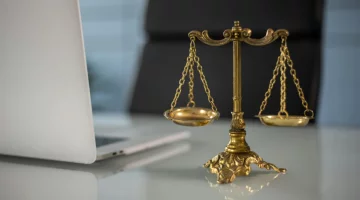Understanding Denied Claims in Hurricane Insurance Cases
Hurricanes can cause catastrophic damage to homes and properties across Florida, leaving residents reliant on their insurance policies to rebuild and recover. Unfortunately, many claims are denied, leaving policyholders in a difficult position. Common reasons for denial include disputes over the cause of damage, missed deadlines, or inadequate documentation. Navigating these denials can be overwhelming, especially when trying to recover from a natural disaster.
Understanding why a claim was denied is the first step toward resolving the issue. Consulting a Florida hurricane claims lawyer can provide the expertise needed to challenge denials effectively. Whether it involves negotiating with the insurer, gathering additional evidence, or filing an appeal, legal guidance ensures your rights are protected. With the right support, you can fight for the compensation you deserve to rebuild and move forward after the storm.
Frequent Causes for Rejected Claims
Insurance contracts usually have terms and conditions that outline the coverage details in detail so policyholders can understand them fully and comply with them for claims to be approved or honored by the insurance company. One common reason behind claim rejection is often related to exclusions stated in the policy document, which specify types of damages or events that are not covered under the policy terms. This can sometimes lead to denials for policyholders filing claims.
Insufficient documentation often results in rejection because it lacks evidence to back up a claim, like photos or repair quotes. This may lead insurance companies to decline requests for compensation. Additionally, discrepancies in the information provided (whether deliberate or unintentional) can also lead to denial since insurers heavily depend on the accuracy of the details submitted.
Policy Exceptions
It's important to know the restrictions of your insurance policy when handling claims because some policies have limits on coverage, which may not cover all damages incurred during incidents like floods that are often separate from hurricane coverage policies to ensure comprehensive coverage that addresses all risks related to hurricanes.
Exclusions are important when it comes to denying claims, as they often involve situations such as negligence or deliberate harm caused to property intentionally by the individual or party involved in the claim process. These could result in claims being rejected by insurance companies during the assessment phase of the claim process.
Actions to Consider Following a Rejected Claim
Getting a rejection can be. It doesn't signify the end of the line for policyholders. There are ways policyholders can efficiently contest a denial. To start with, going through the letter carefully is crucial to grasp the grounds for the refusal. Having this insight aids in collecting evidence to refute the determination.
Getting help from a lawyer or a claims adjuster could offer advice on disputing the decision effectively. These experts are skilled in understanding policy terms and dealing with insurance companies in negotiations. Also, asking for a reassessment or appeal from the insurance company might overturn the denial in case new proof or details come to light.
Keeping Track of Harm and Recording Details
Documentation is crucial when dealing with insurance claims as it helps support the process. Keeping records of the damage, with photos and repair estimates, can greatly enhance the strength of your claim. It's also important to maintain records of all interactions with the insurance company to show that you are following their guidelines diligently.
Keeping all your policy documents neatly filed alongside your correspondence and repair receipts can really help support any claims you need to make if you ever have to dispute a denial.
Preventing Future Claim Denials
Taking steps can reduce the likelihood of insurance claim rejections in the future. By reviewing and updating insurance policies to match our needs, we can make sure that our coverage is adequate. It's important to grasp the terms outlined in our policy, such as exclusions and restrictions, so we can spot any gaps in coverage.
Keeping your property maintained and addressing any risks before a hurricane hits can help avoid disagreements with insurance companies, too. It's common for insurers to carefully review maintenance logs to show that you've been responsible for looking after your property, which can make your claim stronger. Also, reporting any damage promptly after a hurricane hits can speed up the claims process and lessen the chances of it being rejected.
The Importance of Communication
Maintaining communication with insurance companies is vital during the claims process. It keeps policyholders updated on the progress of their claims and any extra needs they may have. Responding quickly to information or document requests can prevent delays.
Customers should make sure to keep a record of all communication with insurance companies by noting down the dates and the names of the people they spoke with. This record could be very helpful in resolving any differences or confusion that may arise during the claims procedure.
Conclusion
Understanding the complexities of filing hurricane insurance claims can be quite difficult, particularly when dealing with claim denials, which come up often. Learning about the reasons for denial and becoming familiar with policy restrictions while also keeping records can give policyholders the tools to stand up for their entitlements. Taking steps to communicate effectively and seeking help from professionals when required can ensure that claims are given evaluation.
More to Read:
Previous Posts:



